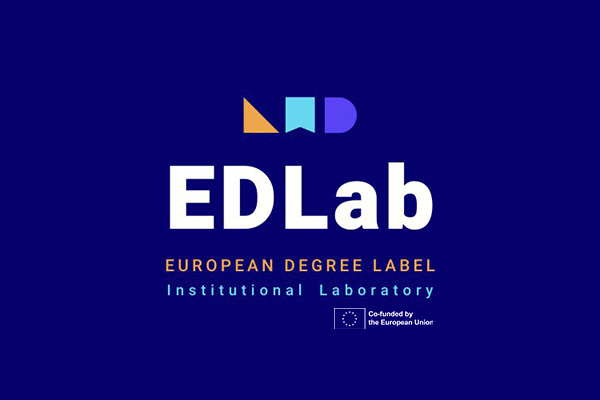Arqus, Together with Three More Alliances, Gets Selected to Pilot the European Degree Label
 The EDLab project, formed by a consortium composed of 13 universities from five national contexts, all full members of European University Alliances, has been selected to work in the experimentation (piloting) of a European Degree Label.
The EDLab project, formed by a consortium composed of 13 universities from five national contexts, all full members of European University Alliances, has been selected to work in the experimentation (piloting) of a European Degree Label.
In line with the European Strategy for Universities and the Council Recommendation of 5th April 2022, and the missions of the four partner European University Alliances, this 1-year project, awarded 200,000 €, aims to further the implementation of European and international joint degree programmes and the European Degree Label with special, but not exclusive, emphasis on four target countries facing obstacles of diverse nature: France, Italy, Portugal and Spain.
The EDLab consortium is composed of universities from the four target countries participating in the Arqus, ENLIGHT, EUTOPIA and SEA-EU Alliances as well as the University of Ghent (ENLIGHT), bringing together those who face challenges with those who have progressed further in resolving them. It also brings together as associate partners remaining universities in the alliances, ministries and QAAs, European and global university networks, with student and alumni associations as a powerful alliance to:
a) Analyse the suitability of the criteria proposed by the EC for the award of the ED Label;
b) Analyse the barriers existing for their fulfilment, with particular but not exclusive reference to France, Italy, Portugal and Spain;
c) Analyse how an ED Label and joint programmes enhance the global attractiveness of the European Higher Education System;
d) Analyse the procedure for the issue of an ED Label and its format, along with potential barriers to be addressed.
e) Produce detailed and robust recommendations on the basis of findings.
The Consortium will publish detailed reports of its findings in all these areas, with recommendations for all stakeholders. EDLab will ensure strong dissemination of its findings, wide European and global participation in up to 24 countries through our existing joint programmes and networks, wide stakeholder participation in all its consultations, and in particular close collaboration with other pilot projects approved under this call, to jointly resolve a longstanding challenge for the European Higher Education area.
Given that the consortium is made up of 13 universities, together with a large group of highly qualified and influential associate partners, and given the large experience of the partners in the design and implementation of joint programmes of different types over the years, some as early as 1989, it is expected that at least 200 existing joint programmes in a wide variety of fields, geographical locations and at all three EHEA cycles (EQF 6, 7 & 8) will be screened against the criteria, allowing an ample sample to identify the appropriateness of the criteria, potential misunderstandings, gaps or overlaps, and to allow for recommendations on their enhancement.